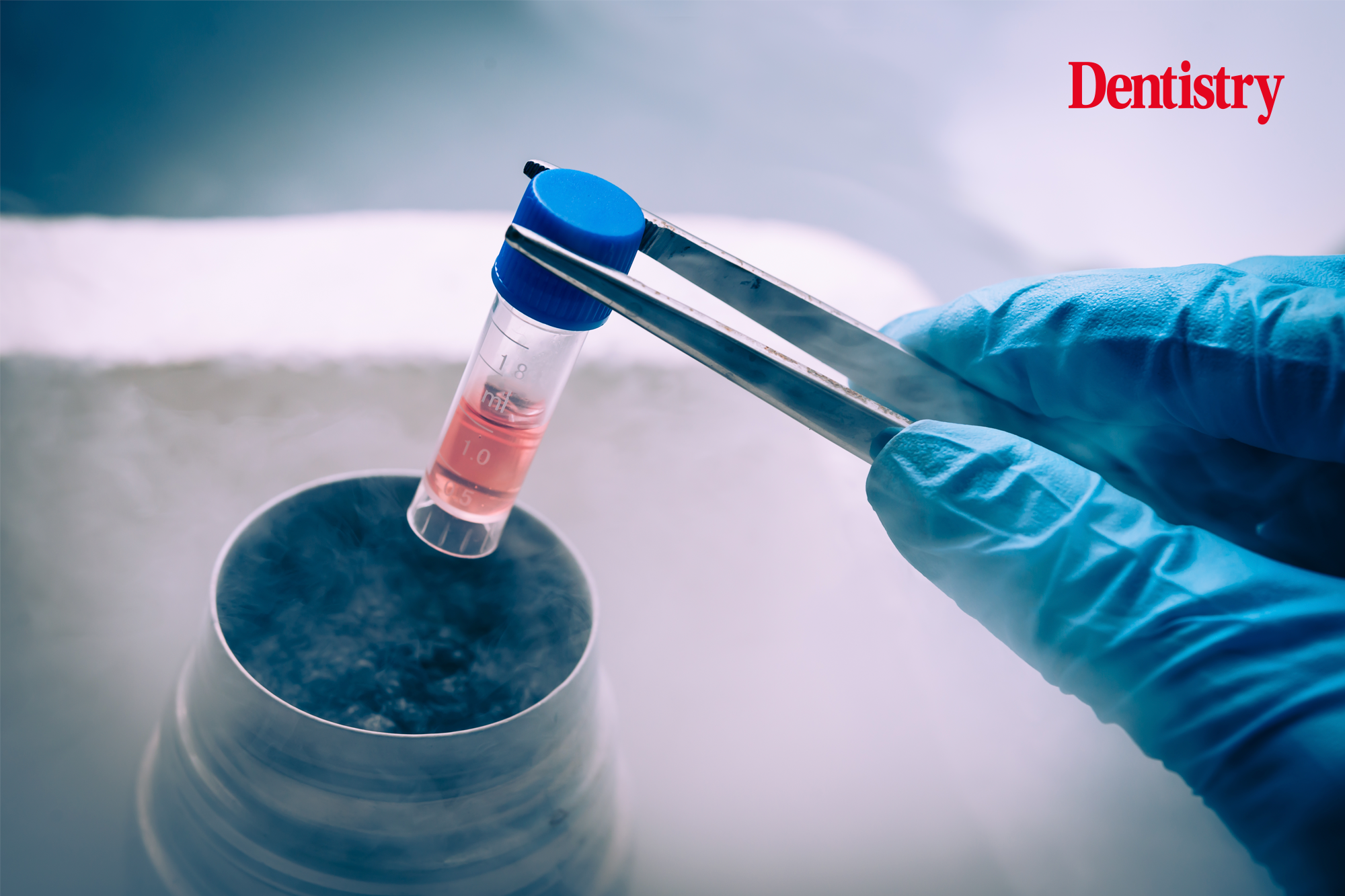
A new study has evaluated the potential uses of stem cells in dental treatment, including regeneration of bone, soft tissue and whole teeth.
Written by researchers at the Sharad Pawar Dental College and Hospital, the study was published in Cureus journal on 17 October.
It stated that stem cells can help with bone regeneration and correction of bone abnormalities. This would be particularly applicable to restorative dentistry cases where craniofacial bone had been damaged by trauma. It was also found that the cells could assist with regenerating soft tissues in the mouth.
The researchers said that whole tooth regeneration ‘appears to be a realistic aim’. They found that regeneration of damaged dentine and pulp has already been proved possible.
‘Problematic and constrained’
However, the potential for using stem cells in dentistry was deemed ‘problematic and constrained by a number of factors that are still out of control’.
One of the major drawbacks of stem-cell therapy was identified as immunological rejection. The study found that certain types of transplanted stem cells are often rejected, including embryonic cells. This makes them less viable as a treatment option, in addition to ethical concerns around taking cells from an embryo.
This did not rule out the use of stem cells from other sources. Transplant rejection was uncommon when adult stem cells taken from organs such as tooth pulp or umbilical chords were used. It was concluded that oral and facial treatment was possible with adult stem cells from many different organs.
‘Critical first step’
In August, scientists from the University of Washington School of Dentistry succeeded in creating stem-cell-based organoids that secrete proteins that form dental enamel.
Professor Hai Zhang, co-author of the study, called this a ‘critical first step’ in the development of stem-cell-based dental treatments.
Professor Hannele Ruohola-Baker felt that stem-cell therapy was more attainable in dentistry than other areas of healthcare. She said: ‘Many of the organs we would like to be able to replace, like human pancreas, kidney and brain, are large and complex. Regenerating them safely from stem cells will take time.
‘Teeth on the other hand are much smaller and less complex. They’re perhaps the low-hanging fruit. It may take a while before we can regenerate them, but we can now see the steps we need to get there.’
Follow Dentistry.co.uk on Instagram to keep up with all the latest dental news and trends.


